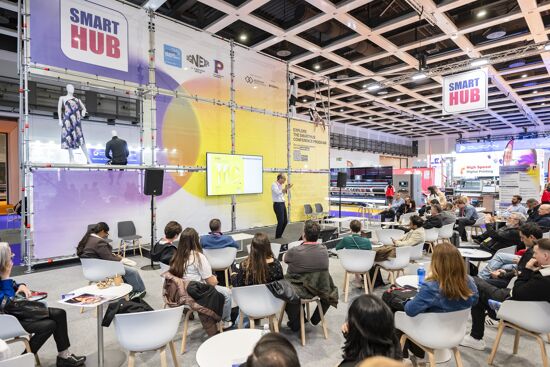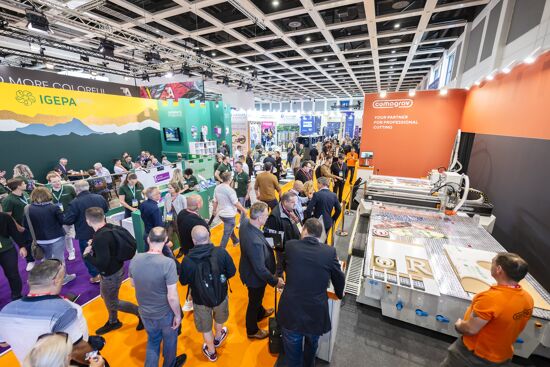FESPA appoints print specialist, Graeme Richardson-Locke, as Head of Technical Support
FESPA announces the appointment of screen and digital printing specialist, Graeme Richardson-Locke, to the newly-formed role of Head of Technical Support.
Graeme is a print expert with over 30 years’ experience in the screen and digital print industry, where he has worked in design, production, sales and operational management positions.
As Head of Technical Support Graeme will provide technical expertise on all matters relating to screen and digital printing on behalf of FESPA and its stakeholders. This will include managing and developing technical content in the form of workshops, guidance documents and research to support FESPA and its national Associations and their members. Graeme will also support with the feature content for FESPA’s global event portfolio.
Graeme’s comprehensive understanding of printing processes comes from extensive industry experience. Prior to joining FESPA, Graeme held the position of Sales and Operations Director at Vektor, a print and design service, for two years, where he was in charge of managing sales and production teams to ensure efficient production of screen printed, embroidered and digitally imaged garments for both large and small businesses.
Prior to Vektor, Graeme was Operations Director at The Print House Group, a position he held for 12 years. Graeme has also worked in a number of positions for Datateam Publishing, Keep Screen, MBM Technology, Retail Promotion Services and Halo Signs, where he began his career as a trainee screen printer.
Since 2003 Graeme has owned his own business, Eye 4 Colour, which works with artists to achieve quality fine art reproductions.
Graeme became more involved with FESPA in 2015 when he became a Director of FESPA UK Association. He has also been a judge for the FESPA Awards since 2016 and, during his time at The Print House Group, the company was awarded a Silver FESPA Award in the Fine Arts category.
Sean Holt, Executive Director at FESPA comments: “We’re delighted to welcome Graeme to FESPA. His experience and industry knowledge will be invaluable both on the Association and events side of our organisation. A key benefit for our members is access to technical support in the form of guides, presentations and courses, and Graeme’s expertise will be instrumental in developing this proposition and reflect our continued evolution of technology and speciality printing.”
Topics
Interested in joining our community?
Enquire today about joining your local FESPA Association or FESPA Direct
Recent news

Industry Experts Explore the Evolution of Smart Manufacturing in the Textile Industry
A FESPA SmartHUB roundtable at Personalisation Experience 2025 discussed smart manufacturing's transformative impact on the textile industry. Experts highlighted the shift to on-demand customisation, driven by digital printing, data analytics, and automation. Key takeaways included enhanced machine control, significant waste reduction through intelligent software and colour management, and improved sustainability via energy efficiency and near-shoring, ensuring agility and environmental responsibility in textile production.

FESPA 2025 gathers leading visionaries from across the speciality print industry in Berlin
FESPA Global Print Expo 2025, European Sign Expo and Personalisation Experience (6 – 9 May 2025, Messe Berlin, Germany) welcomed Visionaries from across the speciality print industry to shape the future of print, develop forward-thinking business strategies, and explore innovative ways to translate emerging industry trends into tangible growth opportunities.

Exploring Cutting-Edge Textile Printing Innovation with Adobe Print Engine 7
Adobe PDF Print Engine 7, launched at FESPA Global Print 2025, significantly advances textile printing. Debbie McKeegan shares how it automates non-white substrate management and RGB colour handling, expands colour gamuts with in-RIP multicolour transparency blending, and streamlines workflows for efficiency and sustainability. This update boosts customisation, reduces waste, and positions businesses at the forefront of digital print innovation.

FESPA Global Print Expo 2025 - Overall Highlights
FESPA Global Print Expo, Europe's leading print and signage exhibition returned to Messe Berlin from 6 - 9 May 2025.